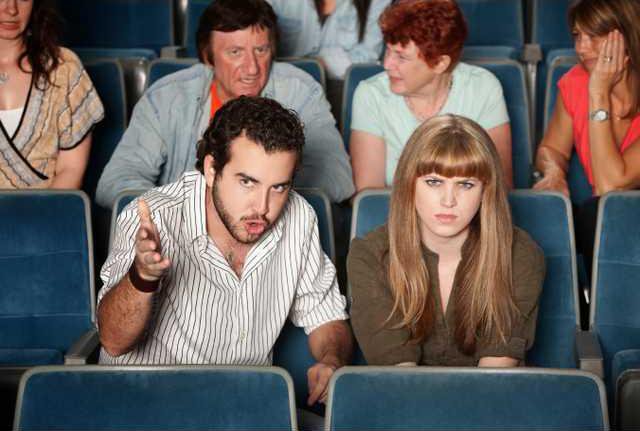They say “everyone’s a critic.” If that is the case, there are a lot of critics in the world. And if each of those critics were to pronounce their opinion two to three times a day, that adds up to a lot of criticism.
Good professional critics are powerful. They experience the world and then give their erudite opinions. We then take their words as truth and act accordingly. There are stories of Broadway shows opening one night and closing the next just on the judgment of one person with a pen and paper. There the pen is mightier than the sword, the producers, the director and the actors. If a well-known drama critic wakes up on the wrong side of the bed or has a spat with his wife before coming to work, watch out. By morning he could chew up a musical and spit it out on the ground.
With the proliferation of food channels on TV, there is never a lack of proclaimed expert culinary critics. There are panels and panels of them. They look, they sniff, they taste, then they move their mouths just so, cock their heads heavenward and proclaim contestant No. 3 the winner or the loser. In one swallow, they make a somebody or a nobody.
There was a cartoon some years ago in The New Yorker magazine. It shows a worn, sun-beaten man crawling desperately across the desert. There before him is a table at which are seated four distinguished characters. One is professorial, the others, refined, chic and eccentric. The caption proclaims his feelings of salvation: “Thank goodness, an expert panel.”
To help everyone be a critic, which some think is their divine right, there are the Internet reviews. To facilitate the need to criticize, movie sites, product pushers and book vendors all have space for comments. Then the criticisms are criticized.
Billions of dollars are at stake based on these points of view. Paid critics carry a big stick; the amateur critics by their sheer numbers are carrying an increasingly large club. Refrigerators are purchased; restaurants are shunned. Expensive cameras and cheap socks are considered depending on the number of stars. The problem comes when there are equal numbers of frowns and smiles. Who can we believe? We are paralyzed or mobilized by the conjectures of others.
It is the critics who call themselves friends who are worrisome. The people we gather around us are the ones who are meant to support us, not condemn us. A person can be pulled safely to shore or washed out to sea depending upon the ebb and flow of the criticisms of people who are supposed to be their lifeguards.
As the circle of critics shrinks smaller and smaller around us, it brings our judges closer and closer. They become louder and louder; we listen to them more and more. They verbally construct a person’s view of themselves from the outside in. The person begins to think, “If this is what those who I trust think, then what they say must be true.”
Just like a review can be freely written by someone who has not read the book, family and friends may not know everything either. Too often they can be the music critics who write their opinions without hearing the song.
The critics who are most concerning are the ones running around in our heads. Too often we are critics of ourselves. Again turning to the wisdom of The New Yorker cartoons, a criminal is jailed behind prison bars. He says, “After the judicial system, I am my own worst critic.”
These internal observers can be correct and contribute to our growth. They can also be no better than the literary critic who can’t read. Just like a professional, we better know what we are talking about, especially when we are talking about ourselves.
If everyone is a personal critic, that is 7 billion too many.
Joseph Cramer, M.D., is a board-certified pediatrician, fellow of the American Academy of Pediatrics, practicing physician for 30 years and a hospitalist. Email: jgcramermd@yahoo.com
Everyone is a critic, and that's too many





